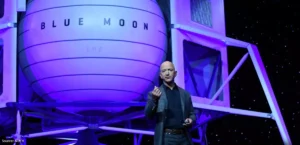RBI Sets September 30 Deadline for Exchanging or Depositing ₹2,000 Notes
The Reserve Bank of India (RBI) has assured the public that the ₹2,000 currency notes will continue to be legal tender even after the September deadline. This announcement aims to prevent panic among the citizens and keeps the possibility of extending the deadline open for exchanging or depositing the high-value notes. The current deadline of September 30 is designed to encourage as many people as possible to utilize the window provided for depositing their ₹2,000 notes. While there is a limit of ₹20,000 for exchange, individuals can visit bank branches multiple times to swap their notes. Furthermore, there is no limit on the amount that can be deposited into a bank account.
No Need to Panic
If you have recently received 25 ₹2,000 notes from an ATM, there is no need to panic. RBI’s data suggests that there have been limited transactions involving these notes, indicating that not many individuals possess a large number of them. The intention behind setting a September deadline is to ensure a smooth and non-disruptive process for exchanging the notes.
“The idea is to ensure that the whole process is non-disruptive. It is a facility to exchange notes,” explained a source. Recognizing that many people may not be able to deposit or exchange their notes within the next four months, there are indications that the deadline may be extended, as was the case in 2014 when bank branches accepted currency notes printed prior to 2005.
Preparing Banks for the Exercise
RBI’s announcement, made on a Friday evening, is also intended to allow banks ample time to prepare for the withdrawal of ₹2,000 currency notes. While the entire process will be streamlined and fine-tuned, officials emphasize that there is no rush to visit bank branches immediately.
Congress Targets PM, Criticizes the Move
The Congress party has seized the opportunity to target Prime Minister Narendra Modi over RBI’s decision to withdraw the ₹2,000 currency notes from circulation. They describe the move as “typical” of the PM’s approach of acting first and thinking later.
Jairam Ramesh, Congress’ communications chief, commented, “Typical of our self-styled Vishwa-guru. First Act, Second Think (FAST). ₹2,000 rupee notes were introduced with much fanfare after the disastrous ‘Tughlaqi farman’ of November 8, 2016, and now they are being withdrawn.”
Another Congress MP referred to this move as the beginning of a second “demonetization disaster,” referring to the demonetization exercise of November 8, 2016, when ₹500 and ₹1,000 banknotes were withdrawn and invalidated. Sharing a video of his wallet containing only ₹500 currency notes, Congress’ Virudh Nagar MP Manickam Tagore stated, “Second Demo disaster starts… M = Madness.”
It is evident that the Congress party is critical of the decision and sees it as an opportunity to question the Prime Minister’s approach.
Conclusion
The RBI’s announcement of setting a September 30 deadline for exchanging or depositing ₹2,000 notes aims to facilitate a smooth process for the public while allowing banks to make necessary preparations. Citizens need not panic as these high-value notes will retain their legal tender status even after the deadline. The Congress party has taken the opportunity to criticize the move, attributing it to the Prime Minister’s decision-making style. However, the focus remains on ensuring a non-disruptive and convenient process for individuals to exchange or deposit their ₹2,000 notes within the given timeframe.




Average Rating